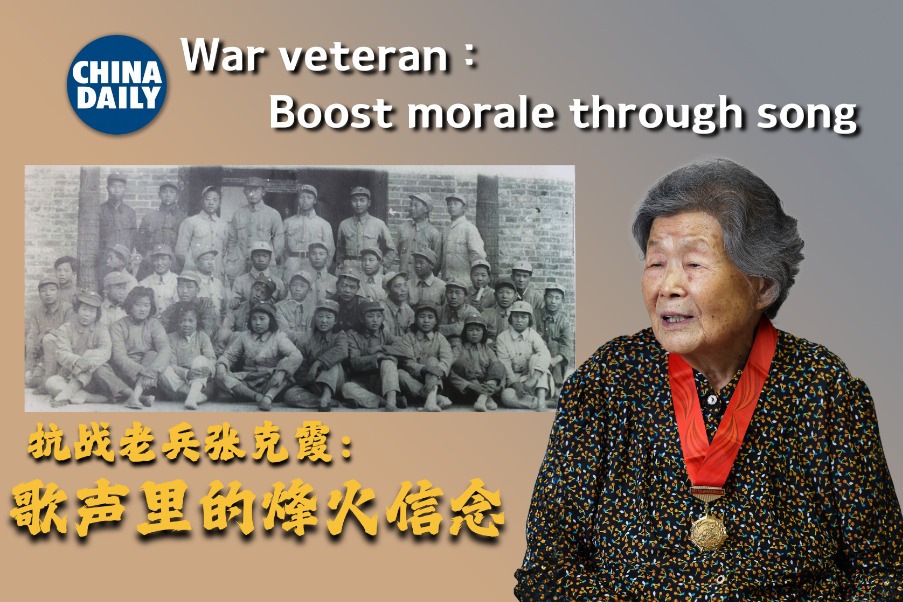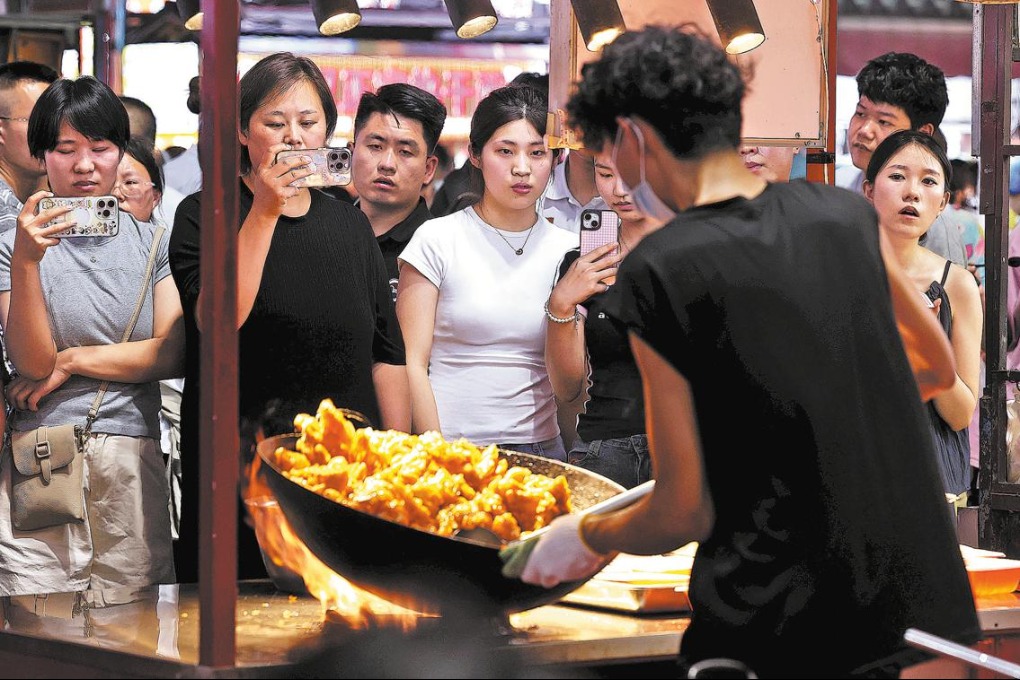Spirit of unity shines through

BEIJING/SHANGHAI — Faced with a rapid wave of COVID-19 infections in China, people have racked their brains to find instant solutions with the help of their warmhearted neighbors and community workers.
In Shanghai, community doctors in the Xietu subdistrict of Xuhui district have limited the amount of antipyretic and analgesic drugs to a maximum of three days' worth per patient. Packages of the most sought-after drugs, like Ibuprofen, are split into halves to better meet the actual medicinal needs for each treatment course.
"It's reasonable for medical institutions to unpack and distribute the cold remedies. Getting a cold is common, and most cold medicines are available over the counter at a low price, so packages of cold medication often exceed the amount needed for a single treatment course," says Zhong Mingkang, chief pharmacist at Huashan Hospital Affiliated with Fudan University.
The community health service center in Xietu subdistrict now serves more than 70,000 local residents, over 16,000 of whom are aged 65 or above, pushing the center to come up with the idea of repackaging its medical resources.
"The practice can more efficiently make use of current resources and benefit more potential patients in the future," Zhong adds.
Additionally, grassroots medical institutions across the country are doing their best to popularize the proper use of medicine, ward off public panic, dispense medicine under professional guidance, as well as cap the amount of medicine being prescribed.
Just as the saying goes, a near neighbor is better than a distant cousin. In Beijing's Fengtai district, residents of the Caoqiaoxinyuan community are sharing their spare medicines with each other during this hard time. Some kind neighbors in the community sent an elderly woman, surnamed Liu, fever-reducing medicine and oranges after she asked for help in the community's online messaging group.
Wang Shiyi, an official with the Yuquanying subdistrict of Fengtai, where Liu's community is located, praised such acts of kindness and unity. "Our subdistrict has encouraged the residents to help each other by sharing their extra medicines and antigen test kits, despite the temporary strained supply. Their spirit of unity can help solve the problems instantly within their residential building," Wang says.
The most mobile workforce in China's major cities has joined the effort to restore normal life in the face of the pandemic.
Ma Liang, head of Shanghai's Huanqiugang delivery station of Meituan Waimai, a major Chinese food delivery platform, now prioritizes drugstore orders over their mounting takeout burden.
Since the end of November, the delivery station has seen its takeout orders soar by 40 percent compared to normal volumes. However, many staff members have fallen sick due to the COVID-19 pandemic, and currently, less than 70 percent of the station's total delivery staff are covering the rocketing online orders.
"Those who place drugstore orders are often patients infected by COVID-19 and are in urgent need of medicine, and thus we will deliver such orders first," Ma says.
The courier sector has also adopted similar steps. Couriers at Shanghai's Xuhuinan station of ZTO Express now cherry-pick parcels that are sent from drugstores and put them to the top of the queue, so that those packages can be delivered first.
"Though the order boom will continue for some time, I believe we can tough it out as long as we understand and help each other," says Wang Jin, a Meituan delivery rider in Shanghai.
Xinhua
Today's Top News
- Bid to sabotage South China Sea consensus shows Manila an irresponsible actor in region: China Daily editorial
- 'Zero-tariff' a blow to zero-sum game
- China's railways hit record 2.24 billion passenger trips in H1
- Collection of Xi's articles on education, other two books published in Hong Kong
- Local govts urged to improve handling of hot spot issues
- China hailed as stabilizing global force





























